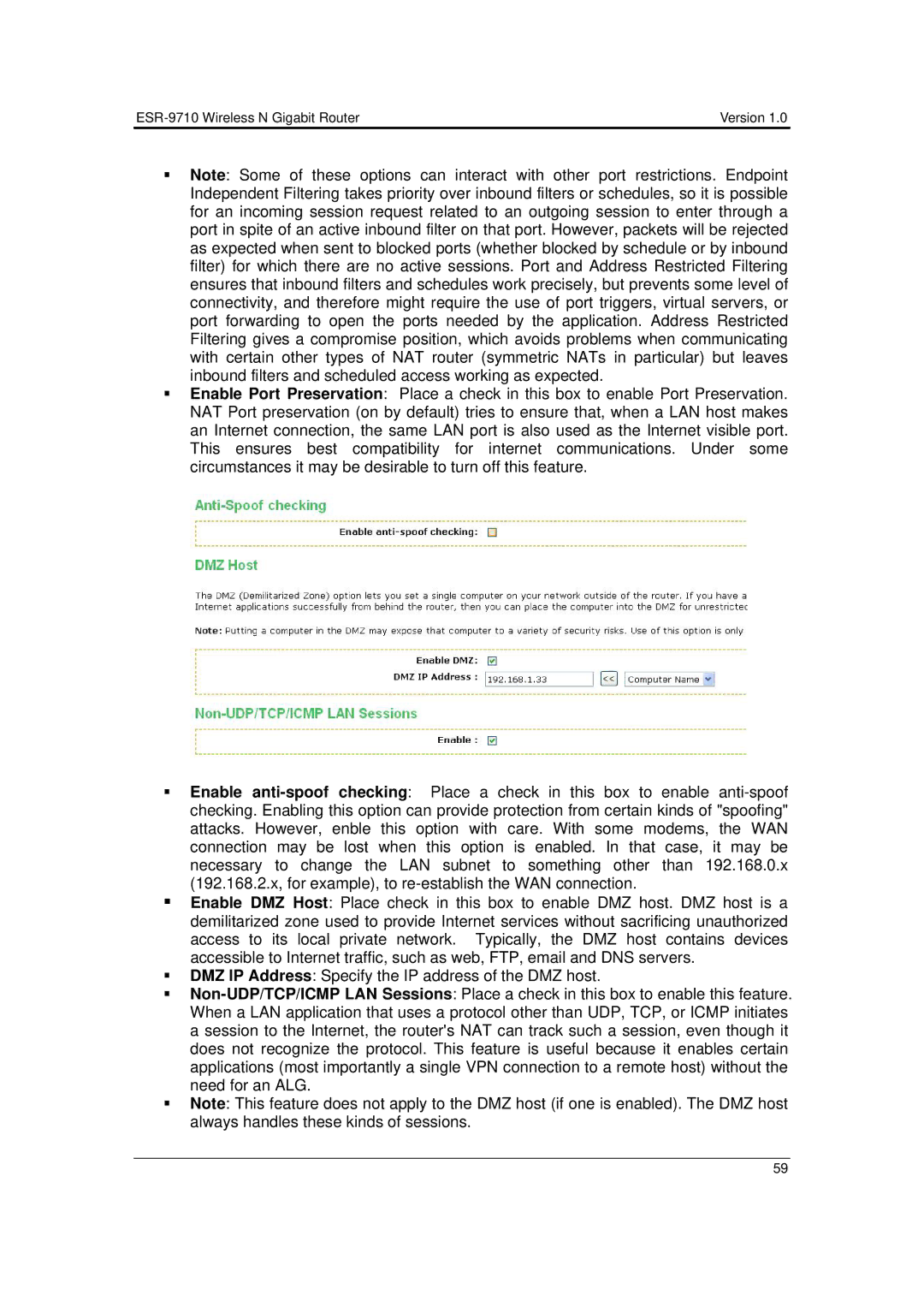
| Version 1.0 |
Note: Some of these options can interact with other port restrictions. Endpoint Independent Filtering takes priority over inbound filters or schedules, so it is possible for an incoming session request related to an outgoing session to enter through a port in spite of an active inbound filter on that port. However, packets will be rejected as expected when sent to blocked ports (whether blocked by schedule or by inbound filter) for which there are no active sessions. Port and Address Restricted Filtering ensures that inbound filters and schedules work precisely, but prevents some level of connectivity, and therefore might require the use of port triggers, virtual servers, or port forwarding to open the ports needed by the application. Address Restricted Filtering gives a compromise position, which avoids problems when communicating with certain other types of NAT router (symmetric NATs in particular) but leaves inbound filters and scheduled access working as expected.
Enable Port Preservation: Place a check in this box to enable Port Preservation. NAT Port preservation (on by default) tries to ensure that, when a LAN host makes an Internet connection, the same LAN port is also used as the Internet visible port. This ensures best compatibility for internet communications. Under some circumstances it may be desirable to turn off this feature.
Enable
Enable DMZ Host: Place check in this box to enable DMZ host. DMZ host is a demilitarized zone used to provide Internet services without sacrificing unauthorized access to its local private network. Typically, the DMZ host contains devices accessible to Internet traffic, such as web, FTP, email and DNS servers.
DMZ IP Address: Specify the IP address of the DMZ host.
Note: This feature does not apply to the DMZ host (if one is enabled). The DMZ host always handles these kinds of sessions.
59
